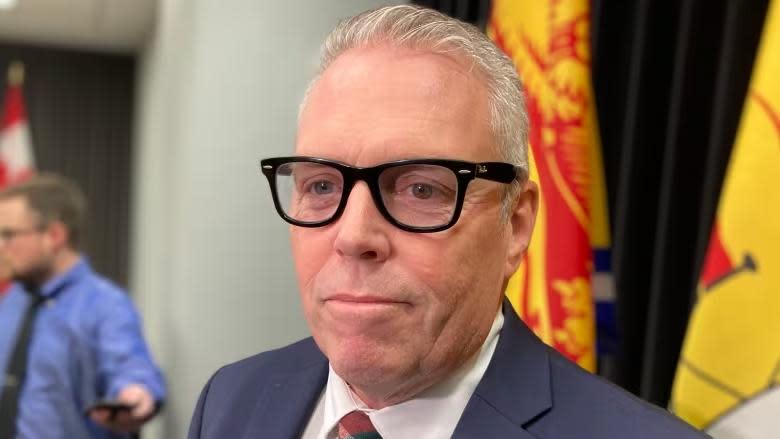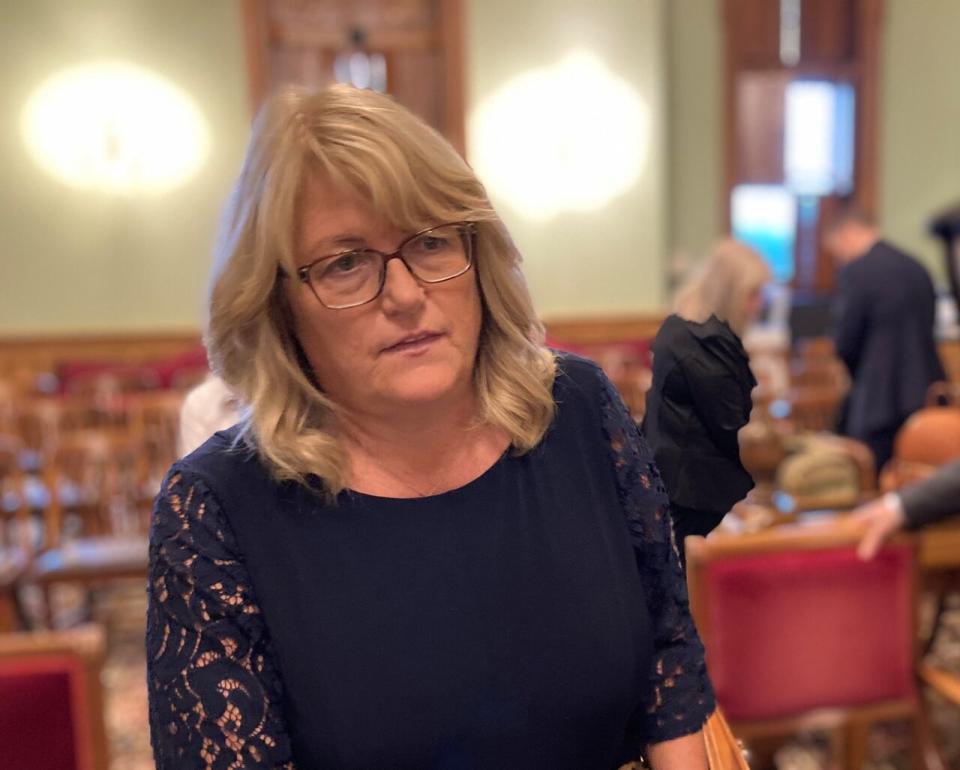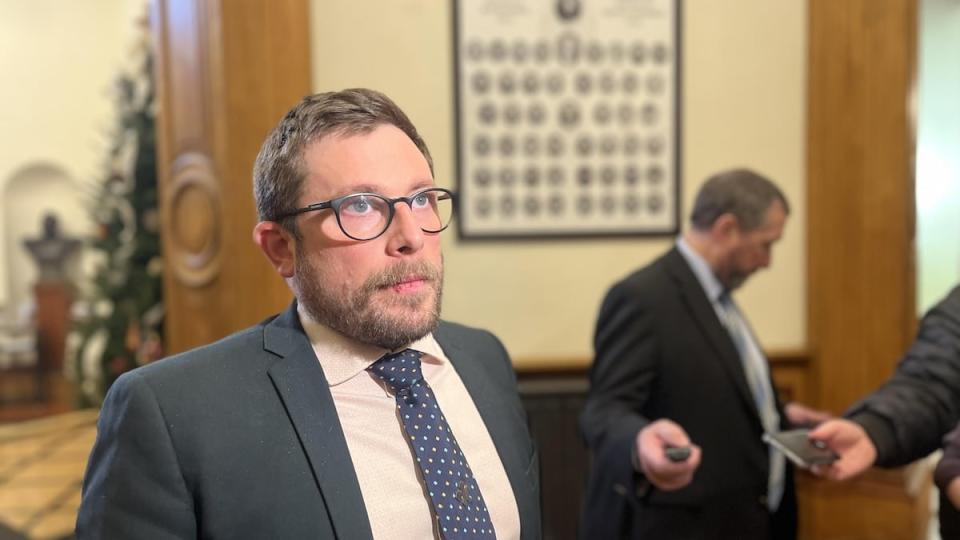Finance officials blame Ottawa as N.B. MLAs question massive surplus revisions

New Brunswick finance officials faced questions from MLAs over a string of surpluses significantly higher than first forecast in recent years.
The officials who appeared before the legislature's public accounts committee Wednesday pointed to the federal government as the source of the discrepancy between initial revenue estimates and final figures.
Cheryl Hansen, the province's top civil servant and deputy finance minister, said they also weren't happy with the recurring change in revenues.
"We are looking to do whatever we can as well as work with our federal colleagues to improve on those projections," Hansen told MLAs.

Cheryl Hansen, clerk of the executive council and deputy finance minister, told MLAs she's not happy to see the large changes in projected revenue. (Jacques Poitras/CBC)
The comments and questions came a week after the province released an update on the 2023-24 fiscal year showing it expects a surplus of $247.4 million, six times higher than originally budgeted.
If the figures hold, it would be the fourth year in a row with a surplus significantly higher than originally forecast.
Surpluses were $400 million higher than expected in 2021, $769 million in 2022 and $1.01 billion last year.
Opposition MLAs suggested the low initial forecast results in under spending on social services.
"Do you calculate the forecast in a way that is too conservative?" Green Party MLA Kevin Arseneau asked during the committee meeting.
"Because the impact of these forecasts is less investments in public services that are required. So the bad forecasts are responsible for more than $2 billion in investments missed, because in March, it's too late to spend this money."

Green Party MLA Kevin Arseneau speaking to reporters in the New Brunswick legislature. (Michel Corriveau/Radio-Canada)
Liberal MLA René Legacy asked why the province's budgets have forecast flat or lower tax revenue and whether it was a policy decision. Hansen said there wasn't a directive to be overly cautious with the initial figures.
Peter Kieley, the department's assistant deputy minister, said the last three years have seen revenue from HST, and personal and corporate income taxes exceed initial forecasts provided by the federal government.
Kieley said those initial projections had, until the pandemic, been reasonably in line with what the province would actually receive.
"But the generally reasonable relationship has gone out the window," Kieley said, saying that the largest previous variance was about $300 million. This year, it's expected to be around $500 million.
"So I'm not making excuses here, I'm just explaining that we do rely on the first official estimate that Ottawa gives us," Kieley said.
He told MLAs that's making the province reconsider its budgeting process.
Finance Minister Ernie Steeves told reporters last week he has written to his federal counterpart asking if there's a better way, so that large changes in expected revenue can be avoided.
Legacy, the Liberal MLA, said they want better projections.
"I'm willing to concede that volatility is crazy," Legacy said.
"Other provinces have had the same issue and it's not easy to estimate what they're going to be."
Todd Selby, the department's executive director of fiscal, economic and statistical analysis, told Arseneau the last few years have been "extraordinary."
"We're constantly trying to improve our ways," Selby said. Whether that results in better forecasting, though, "we do not know."


